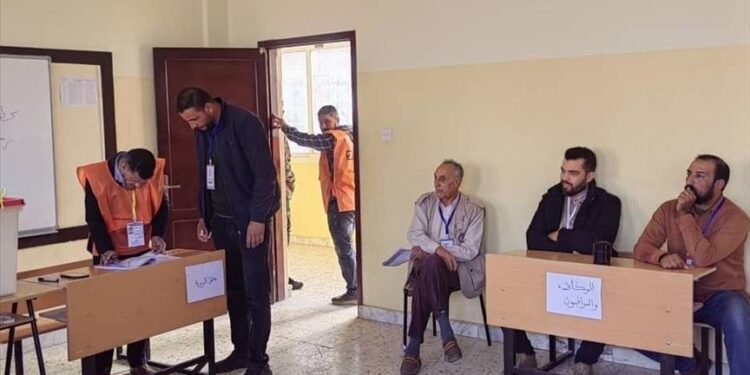TRIPOLI, Libya
The Libyan High National Elections Commission (HNEC) announced on Saturday the start of local elections in 16 municipalities across the country, following a delay in August.
In a statement, the commission said voting began Saturday morning in the 16 municipalities included in the third phase of the elections, and that voting will continue until 6.00 pm local time (1600GMT).
According to the commission, about 96,000 registered voters are eligible to vote at 142 polling centers, including 341 voting stations, to elect 743 candidates using a mixed system that combines lists and individual candidacies.
By 2.00 pm local time (1200GMT), a total of 26,311 voters had cast their ballots, representing an initial turnout of around 30%, the commission reported.
On Nov. 16, 2024, the commission completed the first phase of municipal elections covering 58 out of 143 municipalities.
The second phase took place on Aug. 16 and 23, involving 33 municipalities out of an intended 49, but elections in 16 municipalities were postponed due to security concerns. These have now been incorporated into the third phase, which began Saturday.
The remaining municipalities in the third phase are scheduled to hold their elections on Oct. 20, 2025.
Local elections in Libya are being conducted in stages due to the varying expiry dates of municipal councils’ mandates, with councils whose terms have ended added to the next electoral schedule.
The UN Support Mission in Libya (UNSMIL) welcomed the resumption of the electoral process, praising the agreement reached between the commission and relevant authorities to complete the municipal elections, describing it as a step toward restoring the legitimacy of local governance institutions.
UNSMIL also urged all registered voters to exercise their democratic right and participate in the polls.
Libya remains divided between two rival administrations: the Tripoli-based Government of National Unity led by Abdul Hamid Dbeibah, which controls the west, and another appointed by the House of Representatives in 2022, led by Osama Hammad and based in Benghazi, which governs the east and much of the south.
Libyans hope that the ongoing municipal elections will pave the way for long-delayed parliamentary and presidential elections, helping to end the years-long split and political deadlock over legitimacy.






